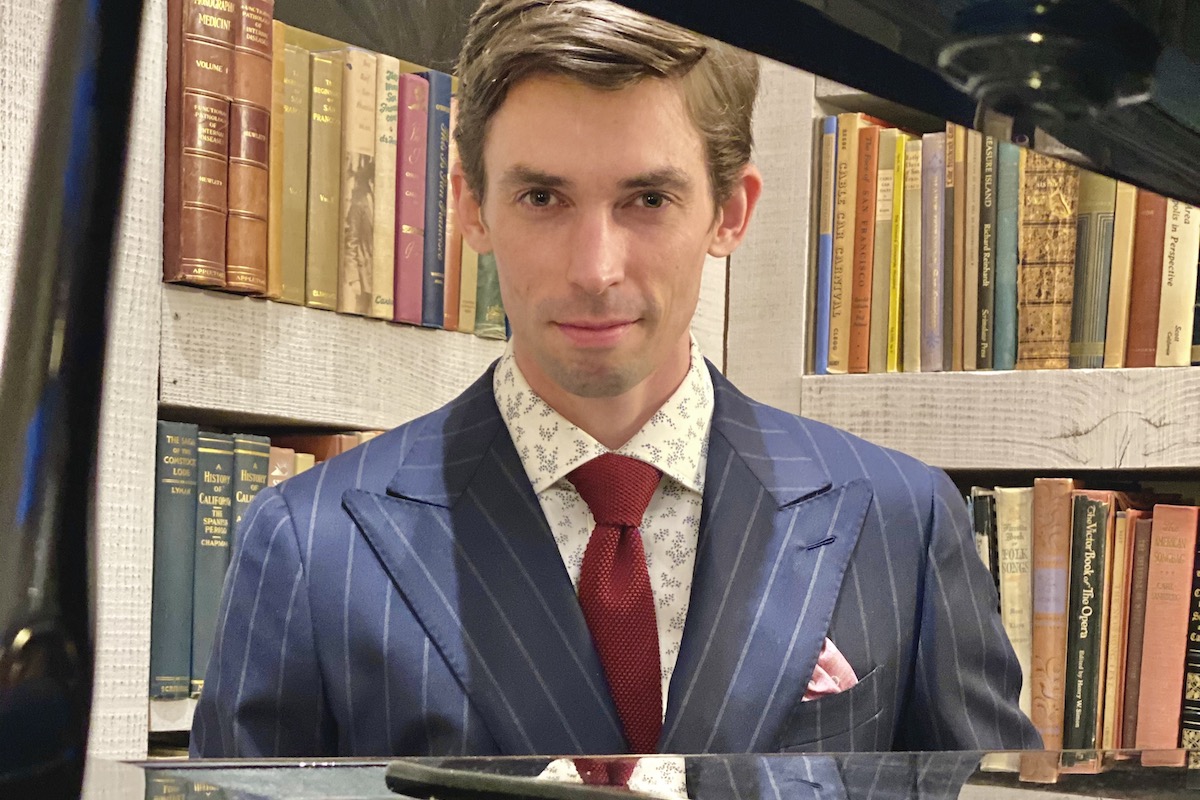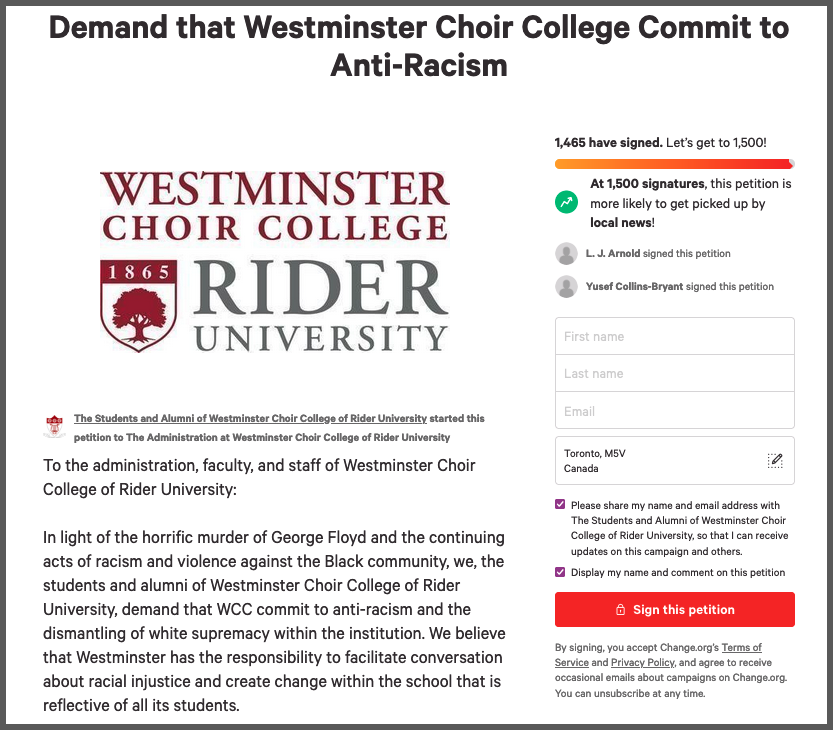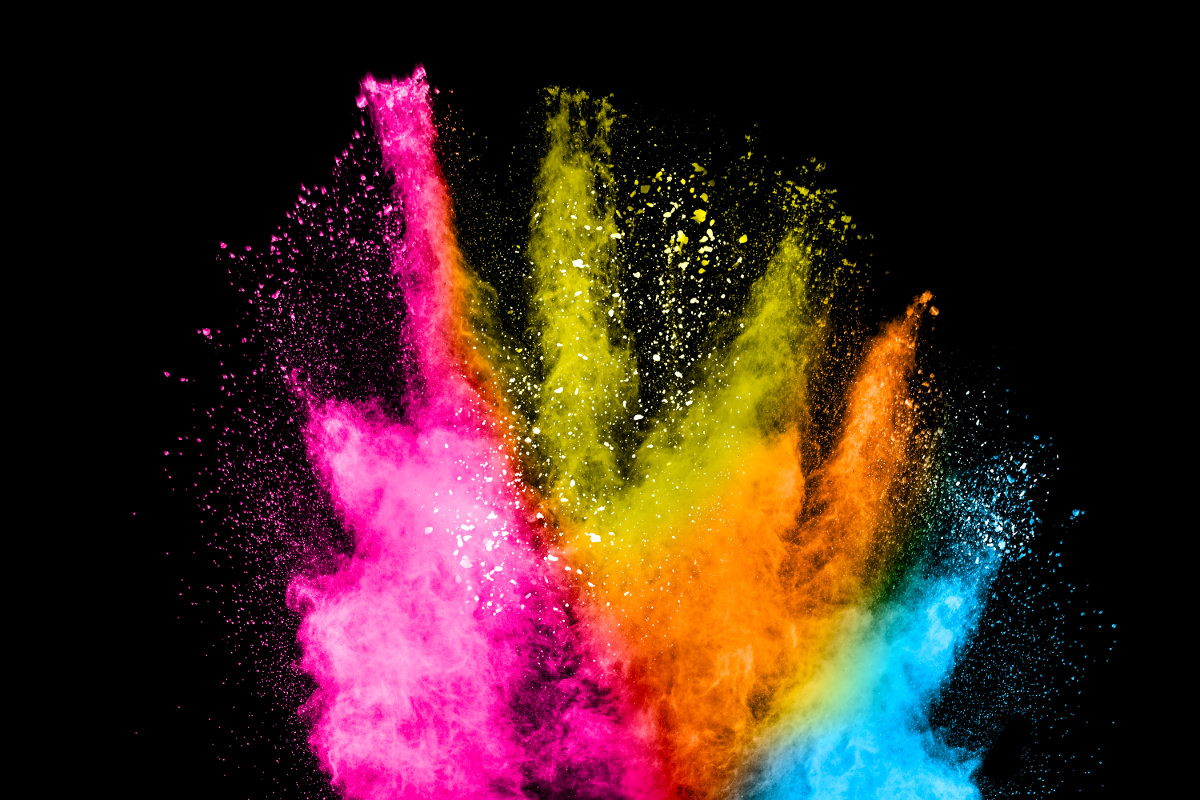Activism
A Conversation with Daniel Elder, the Choral Music Composer Who Was Cancelled for Opposing Arson
If you’re willing to endure the painful trial of self, you will be better for it in the end. And, with enough of us, the world will be better, too.

On May 30th, 2020, amid an anti-police-brutality protest in Nashville, TN, several white protesters allegedly attempted to burn down the city’s Metro Courthouse. In response, choral music composer Daniel Elder, who lives nearby, wrote an Instagram post that read, “Enjoy burning it all down, you well-intentioned, blind people. I’m done.”
As Robby Soave recently reported in Reason, this single post resulted in Elder being mobbed on social media, and effectively cancelled as a composer. In particular, his publisher, GIA Publications, publicly denounced Elder, and demanded that he communicate an apology (of GIA’s own composition) that read, in part:
Over the weekend I made a post on my social media accounts that was insensitive and wrongly-worded. I deeply apologize for the anger, offense, and harm that this post caused. While this offense was not intended, it is what was created. For this I am truly sorry. There is no justification that I can offer for my post. So, rather than try to offer an excuse for what was done, I offer a promise for what I will do going forward. I commit to making amends and to dialogue. I commit to continue educating myself about privilege and bias. I commit to continue seeking an understanding of the experience of others, especially the Black community. I know that working for justice requires that we each first act justly. My work begins now.
Elder, a self-described center-leftist, refused to apologize, and has instead used the ordeal as an opportunity to urge others to push back at what he regards as a “mob mentality” afflicting the music industry. What follows are excerpts from an interview with Elder conducted by Quillette‘s Jonathan Kay following the publication of Reason‘s exposé.
Quillette: In recent years, we’ve seen that tightly networked artistic subcultures are especially vulnerable to being co-opted by relatively small groups of ideologically motivated activists. Before we discuss the details of your own case, could you comment on whether this process of co-option had been playing out in the choral music community even before you posted about arson?
Elder: I think the choral music community has long echoed the political Left’s themes du jour, but most of the time in a subtle way. Choral musicians are especially adept at communicating themes of unity, and usually successful at presenting their activism gently. This crumbled quickly and dramatically in the recent past.
Quillette: Many of these subcultures have witnessed some kind of defining blow-up that mobilizes activists, as with “Gamergate” in the video game sector. Was that the case in your field?
Elder: My scandal seemed to create many ripples. Perhaps it was its critical timing; it ignited like a powder keg. My graduate school (Westminster Choir College in Princeton, NJ) [had] endured its own crisis among students and alumni. An arguably hysterical petition circulated. I didn’t witness the content of their Facebook groups, but it was apparently so bad that a staff member actually called me over the summer, seemingly as a cry for help, solely to ask if there was anything I could do to disarm the situation. Just as with GIA Publications, I knew nothing I could say would make a difference.

Quillette: That petition is really something. Given this climate of hysteria, weren’t you tempted to sign the apology that was prepared for you by GIA—even putting aside the creepy show-trial aspect of being asked to sign an apology someone else wrote?
Elder: First, there’s an important context around all this. The apology draft was not offered as a way out. Within two hours, and before I responded to [its] offer, GIA wrote: “Here is what GIA is going to post to social media so that you’re in the loop.” There was no “unless” included. Because of mob pressure, they were going to publish the statement whether or not I apologized. [This was] followed by: “At this point, we are not stating that we will remove your back catalog works. We think that this can be salvaged if you are able to put an apology out there, and we want that for you.” As I read it, [it] suggest[ed] amends [would be made] after the company publicly disowned my views and labeled them racist. This is critical, because it happens all the time. Someone that arouses the attention of the online mob rarely escapes punishment by prostrating. Stand and face your executioner.
Second, and on the larger scale, I am disturbed by the trend of coercing false public apologies. When the mob insists on its way, each person who succumbs to its demands condones this mob, perpetuating its power, and allow[s] the trend to build and repeat. A person must stand with integrity. With each such person [who does so], the momentum of the mob is checked, and after enough time, perhaps it can be dispersed entirely.
Quillette: When this sort of controversy erupts, bystanders like me tend to take the view you endorse: We say, “Don’t apologize. It only makes things worse.” But people inside the subculture will respond, in effect, “The victim has no choice. He has no choice but to beg for forgiveness, or his career prospects will be finished.” Was that the case here? Have you killed your career in this field for the sake of principle?
Elder: In some ways, it does feel like that, but only when considering the short term. There are some principles vital to the healthy artistic environment that I have seen under increasing threat—polluted by intolerance and groupthink. This [is] why I’ve claimed I do not currently compose music: I’m waiting for [a] healthy environment of free thought to return, since it’s necessary for deeply communicative art. I’ve chosen to look at my loss as a temporary sacrifice in the interest of helping [bring about] change. And in that changed field, I may thrive again, more than ever. As more people take a stand, I have faith this change is coming… sooner or later.
Quillette: Do you think that because music is typically a collaborative activity, the groupthink and cultishness you describe have an especially acute effect? You can be a writer in solitude, or a poet, but not a choral musician. I know some people in the film and theater business, and they say that things are particularly bad in their sectors because all it takes is one person in a large production to make a fuss, and everybody else has to obey their ideological dictates.
Elder: I do agree. It’s a very powerful threat, but [their] susceptibility is, ironically, tied to [the] strengths [of these art forms]. I believe the most profound benefit of choral singing is the intimate bonding that results from sharing our voices with one another. It allows us to come from different backgrounds and tap into our shared humanity. I say this because I believe it is, by definition, tolerant of diversity. For musicians to embrace groupthink is to ignore the tolerance that brought them together in the first place. They are only of such a singular mind because they embraced their differences [originally]. Perhaps they are forgetting that. But I trust that, like any bad habit, it can be broken
Quillette: This is going to seem like an ignorant question, but I’m going to ask it anyway. I had assumed that there was at least a lingering element of Christian religiosity in choral singing—which I (stereotypically) associate with nominally conservative (or at the very least, anti-woke) attitudes. Am I mistaken about that?
Elder: It’s not an ignorant question at all. But yes, in this case, you’re very much mistaken.
First, we must underline how the “choral community” we speak of here comprises far more than just church choirs. It is a heterogeneous blend of high school, college, community, and professional ensembles as well. Therefore, the hyper-liberal nature of academia has heavily infiltrated this community. Through the mid-20th century, choral music remained deeply steeped in the sacred tradition (as you’ve suggested), but that’s changed dramatically in [recent] decades. Even on the church music side, many choir directors prefer substituting sacred texts with gender inclusive language, applying scripture to modern social activism (here’s a recent example), and other common progressive stances. I would opine that, with [some] exceptions, the choral community is every bit as liberal as the rest of the arts.
Quillette: GIA described your social post as “incendiary,” which is kind of ironic given your anti-arson position. You also describe friends and colleagues shunning you. Have any of these people or institutions offered any kind of additional comment or explanation since Robby Soave broke this story for Reason? In my opinion, they all look disgraceful and cowardly in the narrative that emerged.
Elder: I’ve received a couple hundred contacts, and most I’ve only skimmed. But I’m quite sure that no one, not one person [who shunned me], has contacted me since Reason published their story. And it’s not just those [who are directly] involved. My close liberal friends haven’t even sent a single text. I think something fascinating might be going on—a demonstration of our blind spots in media consumption: Because this story has flooded through center-to-right media outlets, I hypothesize that a shocking number of liberal media consumers may be oblivious to the story… I wonder if our populace has just become that polarized.
Quillette: Polling data from New York City (which is not where you live, I realize) suggest that blacks are more concerned than whites about crime (which isn’t surprising since blacks are disproportionately likely to live in high-crime areas), and more skeptical of efforts to defund the police. As I understand, the individuals who allegedly tried to light the Metro Nashville courthouse on fire were themselves white. Have any actual black people gotten upset at you? From what I can observe, this seems to be a white-led mob purporting to operate in support of a black cause.
The wife of Wesley Somers, who was just arrested for vandalizing and possibly burning the Nashville courthouse, has started a “Free Wesley” Go Fund me page.
— The Tennessee Holler (@TheTNHoller) June 1, 2020
There don’t appear to be any donations yet. pic.twitter.com/gak4UFVN40
Elder: A strange thing about this larger movement is how much of it involves people speaking on behalf of others. Most of the attacks on me were directed this way… I know I received no direct contacts [involving] any personal racial grievances from any [self-identified] black individual (which I would have been happy to resolve with utmost mutual respect). As I understand it—[though] having exited social media—any individuals, black, white, or other, who took part in calling me out online were all among the same educated elite class. Through their shared method—creating a public spectacle—I always sensed their motives were more ideological than personal.
Quillette: As you may know, Quillette has published a number of essays and narratives connected to this type of mobbing. The people who refuse to apologize often have some mark of identity that differentiates them from the average guilty white person. They are Jewish or gay or Muslim or trans, or they’re not neurotypical. I am prying into your identity here, but basically I’m asking: Why did you stand up to the mob when most others don’t?

Elder: You caught my attention with “not neurotypical”—as my therapist and I have our casual suspicions. However, I hope it’s not our identity but our courage that determines this. I want to believe that anyone and everyone can choose to stand up for important truths (mine was that violence is violence, and discrimination is discrimination, no matter the context) and that I merely reached a point where I chose to risk everything [for these truths]. The media prefers to focus on how horrible this experience was for me, but an important facet easily lost in this narrative is how free I’ve felt since I made the choice. The defamation hurt, the career losses were devastating blows, but I had a bright flame of integrity burning at my core and, from this, I had the strength to slowly rebuild my life. My career direction is still uncertain, but personally I’ve become stronger than I’ve ever been in my life. I say this as an encouragement to the silent majority all around us: If you’re willing to endure the painful trial of self, you will be better for it in the end. And, with enough of us, the world will be better, too.
Featured image: Elder seated at his piano.






